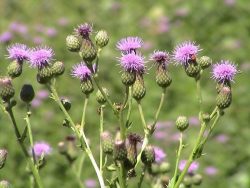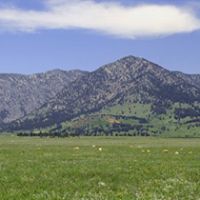Leave No Trace
by Jody Dickson
As we enjoy the great outdoors, it is important to remember that other humans want to enjoy them too and that wildlife depends on our shared natural environments for survival. Thus, it is really important that we lessen our negative impact on the places we visit, so that they are preserved for others to appreciate and rely upon. They will even be there for us to enjoy the next time we want to visit that magical place. Whether there are official rules or not protecting the natural places we go, there are some behaviors that we can practice to preserve and protect those places for years to come.
1.) Plan ahead – learn about what the rules and risks are for the places you go and prepare accordingly. This includes fires, campsites, weather, waste, wildlife, food and water supplies, trail conditions, and more.
2.) Stay on durable surfaces – use established trails and campgrounds. Don’t take shortcuts (even around mud puddles) and avoid fragile surfaces like alpine, desert, and riparian (near water) zones. Damage to land occurs when surface vegetation or organisms are trampled beyond repair. The resulting barren area leads to unusable trails, campsites, and soil erosion. Be sure to camp at least 200 feet from streams, rivers and lakes.
3.) Manage ALL your waste – the age-old adage of “Pack it in – Pack it out” is the best to follow. Don’t leave anything behind, even food scraps. Wash dishes away from any natural water. For human waste, use provided facilities or dig a hole and bury it. Pack out used toilet paper and feminine hygiene products. Extra credit if you pack out the waste that you find from previous visitors!
4.) Leave what you find – if you enjoy something so much that you want to take it, then other people would too. Take a picture of it and leave it for others to find and treasure later.
5.) Minimize campfire impacts – if fires are allowed, used designated fire pits and keep your fire small and in control. In order not to spread disease and harmful bugs, use local wood. Either purchase it or gather dead and down wood from a wide area. Finally, absolutely make sure that your fire pit is cool to the touch when you leave it.
6.) Respect wildlife – remember that you are visiting their home, so don’t destroy the things they depend on. Don’t feed them. Human food isn’t necessarily good for them, and it can create bad habits and harmful dependencies in some species. Keep a safe distance, and don’t harass them. Keep control of your pets, so they don’t bother them, too.
7.) Be considerate of others – Sound travels far, so keep your music and your voices quiet, especially around others that are enjoy (or living in) these natural spaces that we visit.
By protecting our natural environments when we visit them, we reduce the risk of official rules being put into place, including some areas being restricted all together.
We are reading:
Rather than referring you to another reading or something to watch yourself, I’m just sharing a quotation from “The Raid” by Leo Tolstoy. The story was originally published in 1853, but interesting to think about in the context of today:
“Can it be that there is not enough space for man in this beautiful world, under those immeasurable, starry heavens? Is it possible that man’s heart can harbor, amid such ravishing natural beauty feelings of hatred, vengeance, or the desire to destroy his fellows? All the evil in man, one would think, should disappear on contact with Nature, the most spontaneous expression of beauty and goodness.”
Calendar of Events:
Aug 2 – TEG Board Meeting – CCCIA – 6:00 pm
Aug 11 – Saws & Slaws
Get Involved!
Why should you become a member of TEG? By being a member of TEG, you support our efforts to get your neighbors as well as our younger generations involved in environmental action.




